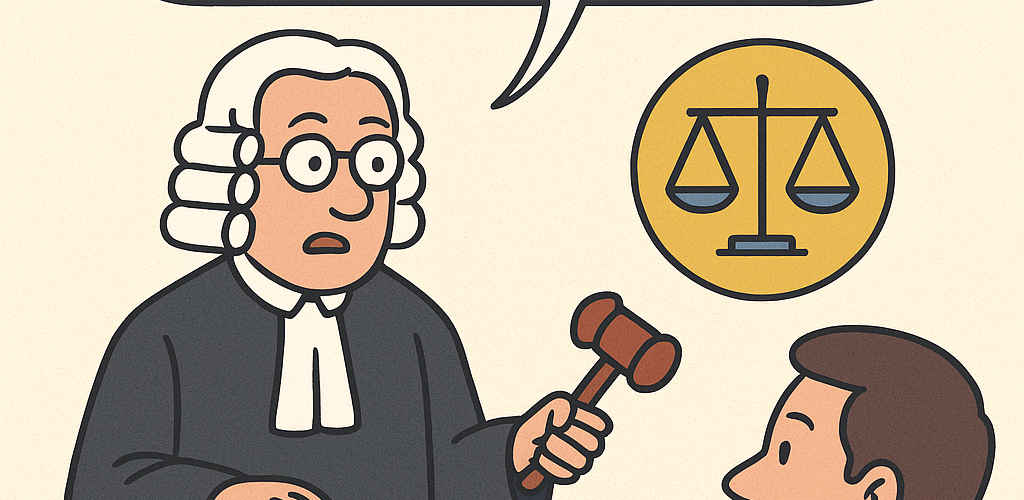Podcast on Spotify
Video on YouTube
VAT Deduction in Business Transfers: A Briefing on the Abbey National Case
This briefing summarizes the key themes and legal principles established by the European Court of Justice (ECJ) in the Abbey National plc vs. Commissioners of Customs and Excise case, focusing on the deductibility of Value Added Tax (VAT) on professional fees incurred during business transfers. The judgment significantly clarifies the application of VAT neutrality and deduction rules in complex scenarios involving the transfer of a totality of assets.
I. Core Legal Issue: Input VAT Deductibility on Non-Taxable Transfers
The central legal issue in Abbey National was “the deductibility of Value Added Tax (VAT) on services incurred by a transferor during the transfer of a business (or part thereof) when the transfer itself is considered a non-taxable supply under national law, specifically interpreting Articles 5(8) and 17(2)(a) of the Sixth VAT Directive.” (Abbey National Study Guide, I.1).
- Article 5(8) of the Sixth VAT Directive: This article provides Member States with an option to treat the “transfer of a totality of assets or part thereof” as if “no supply of goods has taken place,” with the recipient being “treated as the successor to the transferor” (Abbey National Study Guide, I.2; CURIA, para. 5). The UK, through Regulation 5(1) of the VAT Order, exercised this option, meaning that the sale of Scottish Mutual’s lease rights (a subsidiary of Abbey National) was not subject to VAT (Abbey National Study Guide, I.2; CURIA, para. 12). This effectively renders the transfer itself a non-taxable event.
- Article 17(2)(a) of the Sixth VAT Directive: This article establishes the general principle for VAT deduction, stating that a taxable person can deduct input VAT “in so far as the goods and services are used for the purposes of his taxable transactions” (Abbey National Study Guide, I.3; CURIA, para. 7). The dilemma arises because the services (e.g., professional fees) were incurred in relation to a transaction that, due to Article 5(8), was deemed non-taxable.
II. Principle of VAT Neutrality and the “Direct and Immediate Link”
A fundamental tenet of the VAT system, reiterated by the ECJ in Abbey National, is the principle of VAT neutrality. This principle aims to “relieve the trader entirely of the burden of the VAT payable or paid in the course of all his economic activities,” ensuring “complete neutrality of taxation of all economic activities, whatever their purpose or results, provided that they are themselves subject in principle to VAT” (Abbey National Study Guide, I.5; CURIA, para. 24).
Crucially, this neutrality is achieved by requiring a “direct and immediate link” between the input transaction (goods or services acquired, such as professional fees) and the output transactions (the taxable supplies made by the taxable person) that give rise to the right to deduct (Abbey National Study Guide, I.5; CURIA, para. 25). The ECJ emphasized that “the ultimate aim pursued by the taxable person is irrelevant” in this respect (CURIA, para. 25).
III. Rejection of Deductibility Based on Transferee’s Activities
Abbey National’s central argument was that, despite the transfer being non-taxable, the services acquired for the transfer had a direct and immediate link with the transferee’s subsequent taxable economic activities. They contended that the transferor “may under Article 5(8) of the Sixth Directive take account of the transferee’s taxable supplies so as to recover the input VAT in full” (CURIA, para. 18).
The ECJ explicitly rejected this argument, stating two key reasons:
- Focus on the Transferor’s Own Transactions: “a taxable person may deduct only the VAT on the goods and services used for the purposes of his own taxable transactions” (Abbey National Study Guide, I.6; CURIA, para. 32). The VAT system is predicated on the individual taxable person’s economic activities.
- Lack of Direct Burden on Transferee’s Costs: The VAT paid by the transferor on these costs “does not directly burden the various cost components of the transferee’s taxable transactions, as required by Article 2 of the First Directive” (CURIA, para. 32).
IV. Characterization of Transfer Costs as Overheads and the Two-Tiered Deductibility Approach
The ECJ ultimately categorized the costs incurred by the transferor for services related to the business transfer as forming part of the transferor’s overheads (Abbey National Study Guide, I.7; CURIA, para. 35). As such, these costs “in principle have a direct and immediate link with the whole of his economic activity” (Abbey National Study Guide, I.7; CURIA, para. 36).
This characterization leads to a crucial two-tiered approach to VAT deductibility:
- Overheads Linked to the “Whole Economic Activity” (Pro-Rata Rule): If the transferor’s economic activity as a whole includes both VAT-deductible (taxable) and non-deductible (exempt) transactions, then “only that proportion of the VAT which is attributable to the former transactions” can be deducted (Abbey National Study Guide, I.7; CURIA, para. 42). This invokes the pro-rata rule outlined in Article 17(5) of the Sixth VAT Directive.
- Overheads Linked to a “Clearly Defined Part” of Economic Activities (Full Deduction): A significant clarification allows for full deduction under specific conditions: “However, if the various services acquired by the transferor in order to effect the transfer have a direct and immediate link with a clearly defined part of his economic activities, so that the costs of those services form part of the overheads of that part of the business, and all the transactions relating to that part of the business are subject to VAT, he may deduct all the VAT charged on his costs of acquiring those services” (Abbey National Study Guide, I.8; CURIA, para. 42).
This distinction is vital because it determines the extent of VAT recovery. If costs are general overheads for a business engaged in mixed (taxable and exempt) activities, the pro-rata rule limits deduction. However, if the costs can be directly and immediately linked to a specific, wholly taxable segment of the business, full VAT deduction is permitted, upholding complete VAT neutrality for that particular business part (Abbey National Study Guide, I.9).
V. Role of the National Court
The ECJ clarified that it is “for the national court to determine whether those criteria are satisfied in the case in point in the main proceedings” (Abbey National Study Guide, I.10; CURIA, para. 41). This means the High Court of Justice of England and Wales was responsible for applying the ECJ’s interpretation to the specific facts of the Abbey National case.
VI. Practical Implications for Businesses
For businesses undertaking transfers of assets in Member States that have adopted Article 5(8), the Abbey National judgment has significant practical implications:
- Careful Cost Allocation: Businesses must meticulously identify and, where possible, ring-fence professional fees and other costs associated with the transfer to specific parts of their economic activity.
- Documentation: Robust documentation is essential to demonstrate a “direct and immediate link” between the transfer-related costs and a “clearly defined part” of the business whose transactions are entirely taxable.
- Review of Economic Activities: Businesses should analyze their overall economic activities and, particularly, the nature of the transferred business segment. If the transferred part consistently engaged only in taxable activities, there is a strong basis for full VAT recovery on associated overheads.
- Consultation: Given the complexity, consulting VAT experts is advisable to ensure compliance and maximize VAT recovery in such transfers.
The Abbey National judgment underscores the ECJ’s commitment to the principle of VAT neutrality while providing crucial guidance on how it applies to the deductibility of input VAT on overheads in business transfer scenarios where the transfer itself is non-taxable.
See also
- C-408/98 (Abbey National plc) – Costs of the transferor for the services related to TOGC form are directly and immediately related to the entire economic activity – VATupdate
- Roadtrip through ECJ Cases – Transfer of Going Concern (Art 19)
- Join the Linkedin Group on ECJ/CJEU/General Court VAT Cases, click HERE
- VATupdate.com – Your FREE source of information on ECJ VAT Cases
Latest Posts in "European Union"
- Briefing document & Podcast: EU VAT Directive 2006/112/EC Explained: ”VAT Rates” (Art. 93-129a)
- Briefing document & Podcast: EU VAT Directive 2006/112/EC Explained: ”Deductions” (Art. 167-192)
- Briefing document & Podcast: EU VAT Directive 2006/112/EC Explained: ”Exemptions” (Art. 131-166)
- Less Known Facts from the EU VAT Gap Report
- Briefing document & Podcast: EU VAT Directive 2006/112/EC Explained: The concept of ”Taxable persons” (Art. 9-13)













